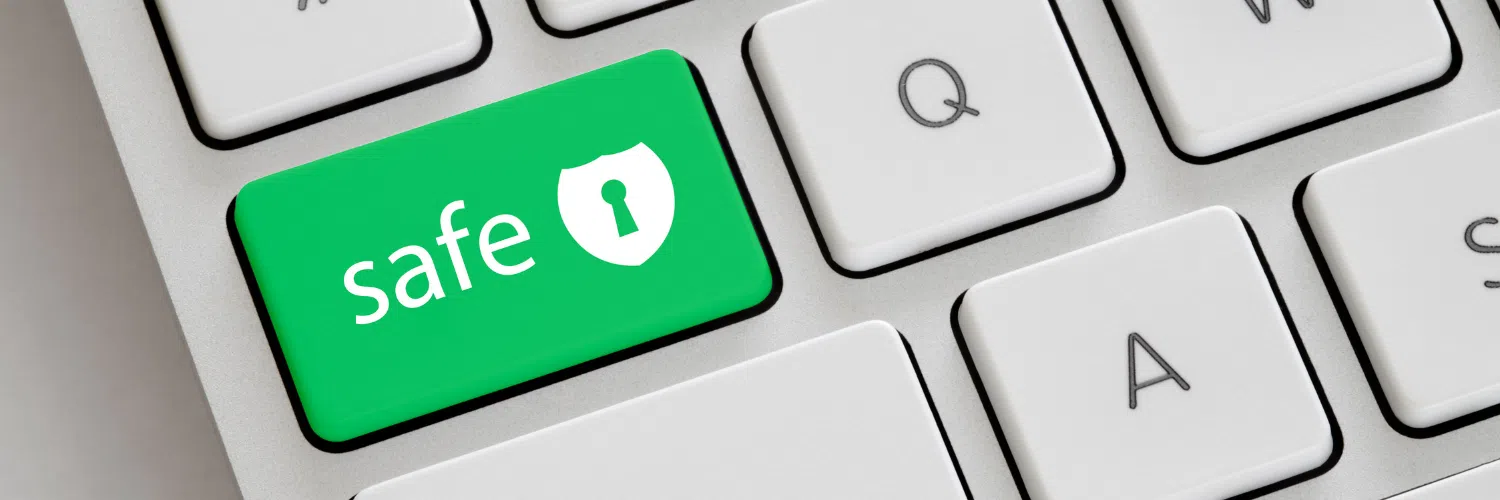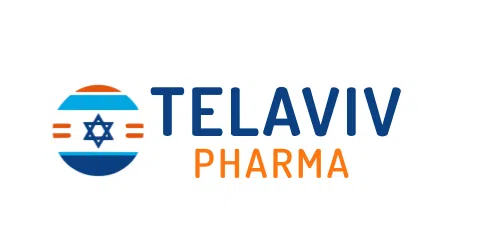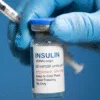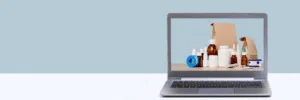
12 Questions to Ask Before You Order Medication Online
Last Updated on November 27, 2025
Online pharmacies make medications affordable and convenient, but not all websites selling prescription drugs are legitimate. Before you order medication online, you need to verify you’re dealing with a legitimate pharmacy that follows safety standards and legal requirements.
This guide provides 15 critical questions to ask before placing your first order. By the end, you’ll know exactly how to identify safe online medical stores and avoid dangerous scams that could harm your health or steal your money. We’ll use examples from legitimate pharmacies to show you what to look for and what red flags mean you should walk away immediately.
Why Online Pharmacy Safety Matters
Contents
- Why Online Pharmacy Safety Matters
- Question 1: Does the Pharmacy Require a Valid Prescription?
- Question 2: Can I Speak With a Licensed Pharmacist?
- Question 3: What Payment Methods Are Accepted?
- Question 4: Where Are the Medications Sourced From?
- Question 5: How Long Does Shipping Take and What Are the Costs?
- Question 6: Does the Website Display Contact Information?
- Question 7: Are There Real Customer Reviews?
- Question 8: What Quality Controls Are in Place?
- Question 9: What Information Do They Require From Me?
- Question 10: Are Prices Reasonable or Too Good to Be True?
- Question 11: Do They Provide Clear Medication Information?
- Question 12: What Is Their Policy on Prescription Refills?
- How to Put These Questions Into Action
- Warning Signs That Should Stop You Immediately
- The Bottom Line: Protecting Your Health and Wallet
The risks of using illegitimate online pharmacies go far beyond losing money. Counterfeit medications may contain wrong ingredients, incorrect doses, or dangerous substances like heavy metals, paint, or even fentanyl. Patients have died from taking fake medications purchased online. Others have suffered severe health complications when counterfeit drugs contained no active ingredient at all, leaving serious conditions untreated.
Beyond health risks, fake pharmacies steal credit card information and personal data including Social Security numbers, addresses, and medical information. This identity theft can haunt you for years. Some scam sites are sophisticated—they look professional, have secure payment pages, and even fake customer reviews. Thats why you need a systematic approach to verify legitimacy before ordering.
Legitimate international pharmacies can save you 40-85% on medications compared to US retail prices. For example, Jardiance costs $86 through legitimate online pharmacy delivery versus $550-650 at US retail pharmacies. But accessing these savings safely requires knowing which questions to ask and what answers should concern you.
Question 1: Does the Pharmacy Require a Valid Prescription?
What to ask: “Can I order prescription medications without submitting a prescription from my doctor?”
The right answer: No. Legitimate pharmacies ALWAYS require a valid prescription for prescription medications. This is both a legal requirement and a safety measure. If a website offers to sell you diabetes medications, blood pressure drugs, or any prescription medication without requiring a prescription, its operating illegally and likely selling counterfeit or dangerous products.
How legitimate pharmacies handle prescriptions: They’ll ask you to upload a scanned copy, email a photo, or fax your prescription. Some will contact your doctor directly to verify the prescription. The prescription must include your name, the medication name and dosage, doctor’s information, and prescription date. Legitimate pharmacies keep prescriptions on file and track refills to ensure you don’t exceed what your doctor authorized.
Red flags: Websites that offer “online consultations” with their own doctors who automatically approve prescriptions without examining you or reviewing your medical history. Sites that say prescriptions are “optional” or “not required for international orders.” Any pharmacy that claims you can order controlled substances without a prescription.
Question 2: Can I Speak With a Licensed Pharmacist?
What to ask: “Can I speak with a pharmacist about my medications, side effects, or drug interactions?”
The right answer: Yes. Legitimate pharmacies employ licensed pharmacists who are available to answer questions. You should be able to call, email, or use live chat to consult with a pharmacist about your medications. This is a crucial safety feature—pharmacists can identify dangerous drug interactions, answer questions about side effects, and provide guidance on proper medication use.
How to test this: Before placing your first order, contact the pharmacy with a simple question about one of your medications. Ask about potential interactions with another drug you take or inquire about proper dosing times. A legitimate pharmacy will provide thoughtful, accurate answers from a licensed pharmacist. If you’re considering ordering Januvia alongside other medications, this consultation service is invaluable.
Red flags: No pharmacist contact option provided. Only customer service representatives who can’t answer medical questions. Automated responses to medical questions. Long wait times with no pharmacist callback. Pharmacists who pressure you to order more medications or upgrade to more expensive options.

Question 3: What Payment Methods Are Accepted?
What to ask: “What payment methods do you accept, and how is my payment information protected?”
The right answer: Legitimate pharmacies accept mainstream payment methods including major credit cards (Visa, Mastercard, American Express), debit cards, and sometimes bank transfers. Credit card payments offer consumer protection—you can dispute charges if something goes wrong. Payment pages should use SSL encryption (look for “https://” and a padlock icon in your browser).
Payment methods that indicate legitimacy:
- Major credit cards processed through recognized payment processors
- Secure checkout pages with encryption
- Payment confirmation emails with transaction details
- Clear refund and return policies
Red flags: Only accepts cryptocurrency, wire transfers, Western Union, MoneyGram, or gift cards. These payment methods offer no consumer protection and are favored by scammers because they’re difficult to trace and impossible to reverse. If a pharmacy insists on these payment methods, walk away immediately. When ordering medications like Amaryl or any prescription drug, use credit cards for protection.
Question 4: Where Are the Medications Sourced From?
What to ask: “Where do you source your medications, and are they manufactured by approved pharmaceutical companies?”
The right answer: Legitimate pharmacies source medications from licensed pharmaceutical manufacturers and are transparent about sourcing. For example, a pharmacy selling Jardiance should confirm its manufactured by Boehringer Ingelheim, the legitimate manufacturer. The medication might come from different countries (Canada, Europe, Israel) where the same manufacturers sell at lower prices, but it should be the authentic product from the real pharmaceutical company.
What to verify:
- Medications come in original manufacturer packaging
- Brand names match the actual pharmaceutical companies
- Generic medications clearly state which company manufactures them
- The pharmacy can provide information about where medications are sourced
Red flags: Vague answers about sourcing like “from various suppliers.” Claims that medications come from “generic manufacturers” without providing specific company names. Prices that are impossibly low (like 95% off US retail—legitimate savings are typically 40-85%). Medication packaging that looks different from manufacturer’s standard packaging or has spelling errors on labels.
Question 5: How Long Does Shipping Take and What Are the Costs?
What to ask: “How long will delivery take to my location, what’s the shipping cost, and how is my package tracked?”
The right answer: Legitimate international pharmacies are transparent about shipping times and costs. Typical delivery from international pharmacies takes 10-21 business days to the US, including processing time, international transit, and customs clearance. Shipping costs usually range from $15-40 depending on order size and shipping speed. Some pharmacies offer free shipping on orders over a certain amount (like $95+).
What legitimate pharmacies provide:
- Clear shipping timelines before you order
- Tracking numbers for all shipments
- Explanation of customs process for international orders
- Insurance or reshipping policy if packages are lost or damaged
- Contact information if shipping problems occur
When you order through legitimate pharmacy services, they should explain the entire delivery process upfront, including what to do if your package is delayed at customs.
Red flags: Promises of impossibly fast international shipping (like 2-3 days from overseas). No information about shipping times or costs until after you’ve paid. No tracking numbers provided. Vague statements like “ships soon” without specific timeframes. Shipping costs that exceed the medication cost.
Question 6: Does the Website Display Contact Information?
What to ask: “How can I contact you if I have questions or problems?”
The right answer: Legitimate pharmacies provide multiple ways to contact them:
- Phone number (bonus points if they list specific hours of operation)
- Email address
- Physical mailing address
- Contact form on website
- Sometimes live chat support
The contact information should be easy to find—usually in the header, footer, or a dedicated “Contact Us” page. Test the phone number before ordering. Legitimate businesses answer their phones during business hours. If you’re considering ordering Janumet or other medications, being able to reach the pharmacy is essential for safety.
Red flags: No phone number provided. Only a generic contact form with no other contact options. Email addresses using free services like Gmail or Yahoo instead of the pharmacy’s domain. Phone numbers that go to voicemail with no callback. Physical address that’s just a P.O. box or mailbox service. Contact information hidden in fine print.
Question 7: Are There Real Customer Reviews?
What to ask: “Can I see reviews from other customers, and do those reviews seem authentic?”
The right answer: Legitimate pharmacies have real customer reviews that include both positive and negative feedback. Reviews should be detailed and specific—not just generic praise. Look for reviews on independent sites like Trustpilot, BBB (Better Business Bureau), or LegitScript, not just reviews on the pharmacy’s own website.
How to evaluate reviews:
- Real reviews mention specific medications, shipping times, or customer service experiences
- Mix of ratings—no legitimate business has 100% five-star reviews
- Reviews posted over time, not all on the same date
- Reviewers have different writing styles and perspectives
- Some negative reviews with pharmacy responses explaining how they resolved issues
Red flags: Only glowing reviews with no criticism. All reviews posted on the same dates. Generic language that could apply to any pharmacy (“great service, fast shipping”). Reviews that read like advertisements. No reviews on independent review sites. Pharmacy with no online presence or reviews anywhere. Fake testimonials with stock photos.
Question 8: What Quality Controls Are in Place?
What to ask: “How do you ensure medication quality and safety?”
The right answer: Legitimate pharmacies follow pharmaceutical safety standards and can explain their quality controls. They should mention:
- Sourcing only from licensed manufacturers
- Proper storage conditions (temperature and humidity control)
- Regular inspections by regulatory authorities
- Pharmacist verification of all prescriptions
- Checking expiration dates before shipping
- Proper packaging to protect medications during shipping
When ordering temperature-sensitive medications or diabetes treatments, ask about storage and shipping conditions specifically.
Red flags: Cannot or will not answer questions about quality controls. Vague responses like “we follow all standards” without specifics. No mention of licensed pharmacists verifying orders. Can’t explain how they handle storage or shipping conditions for sensitive medications. Claims that all medications are “pharmacy grade” without explaining what that means.
Question 9: What Information Do They Require From Me?
What to ask: “What personal and medical information do you need to process my order?”
The right answer: Legitimate pharmacies need specific information to safely process prescriptions:
- Your name, date of birth, and address
- Valid prescription from your doctor
- Current medications you’re taking (to check interactions)
- Any known allergies
- Doctor’s contact information to verify prescription
- Payment information for the order
They should NOT ask for unnecessary information like your Social Security number (only needed for insurance billing, not cash orders), bank account numbers (for credit card orders), or excessive medical history unrelated to your prescription.
Red flags: Asking for Social Security number when paying cash. Requesting bank account access. Asking for medical information far beyond what’s relevant to your prescription. Requiring you to create elaborate accounts with excessive personal data. No privacy policy explaining how they protect your information. Websites with obvious security vulnerabilities.
Question 10: Are Prices Reasonable or Too Good to Be True?
What to ask: “How do your prices compare to other legitimate pharmacies, and why are they lower than US retail?”
The right answer: Legitimate international pharmacies offer savings of 40-85% compared to US retail prices due to government price regulations in their countries. For example:
- Jardiance: $86 vs $550-650 US retail (84-87% savings)
- Januvia: $111 vs $550-600 US retail (80-82% savings)
- Amaryl: $15 vs $80-120 US retail (81-88% savings)
These prices are substantially lower than US retail but not impossibly low. The pharmacy should be able to explain why their prices are lower—usually government price controls in Canada, Europe, or Israel that cap pharmaceutical costs.
Red flags: Prices 95% off US retail (like $20 for medications that cost $500 in the US). Prices that fluctuate wildly from day to day. “One time only” pricing pressure tactics. Medications priced the same regardless of strength or quantity. Prices so low they don’t cover the cost of legitimate manufacturing and shipping.
Question 11: Do They Provide Clear Medication Information?
What to ask: “Will I receive information about my medication, including side effects, interactions, and proper usage?”
The right answer: Yes. Legitimate pharmacies include patient information leaflets with medications explaining:
- What the medication is and what it treats
- How to take it properly (dosage, timing, with/without food)
- Common side effects and what to do about them
- Serious side effects requiring immediate medical attention
- Drug interactions and what to avoid
- Storage instructions
- What to do if you miss a dose
Some pharmacies also provide this information on their website before you order. When researching medications like blood pressure medications or diabetes drugs, look for detailed product information on the pharmacy’s website.
Red flags: No medication information provided. Instructions only in foreign languages with no English translation. Vague or incorrect information about medications. No information about side effects or interactions. Medications shipped in unlabeled containers or packaging with no identification.
Question 12: What Is Their Policy on Prescription Refills?
What to ask: “How do I refill my prescription, and how do you track refills to prevent overuse?”
The right answer: Legitimate pharmacies keep your prescription on file and track refills. They’ll remind you when its time to refill and verify that you haven’t exceeded the number of refills your doctor authorized. The refill process should be straightforward—usually you can reorder through their website, by phone, or by email, and they’ll reference your existing prescription on file.
How legitimate refill systems work:
- Pharmacy keeps your original prescription and refill information on file
- System prevents you from ordering more than prescribed
- Reminds you when your prescription expires and you need a new one from your doctor
- Easy reordering process for authorized refills
- May contact your doctor for refill authorization if prescription is unclear
Red flags: Will sell you unlimited quantities without checking prescriptions. No tracking of previous orders or refills. Allows you to order controlled substances repeatedly without verification. Makes it difficult to reorder medications (requiring you to go through the entire process again each time). No system for storing prescription information.
How to Put These Questions Into Action
Now that you know what questions to ask, here’s a practical system for evaluating any online medical store before placing your first order:
Step 1: Start With the Website Homepage
Legitimate pharmacies have professional, informative websites. Look for:
- Clear information about who they are and where they’re located
- Contact information prominently displayed
- Professional design without excessive pop-ups or aggressive ads
- Information about products organized clearly
- Search function that actually works
- Secure connection (https://) throughout the site
Step 2: Review Their About Us and FAQ Pages
These pages should answer most of your 15 questions. Look for:
- Company history and background
- Licensing and regulatory information
- Explanation of how they operate
- Staff credentials (pharmacists, customer service)
- Clear answers to common questions
- Transparency about their business model
Step 3: Contact Them Before Ordering
Call or email with questions before placing your first order. This tests:
- Whether they actually respond
- Quality of customer service
- Knowledge of their staff
- Professionalism of communication
- Whether they pressure you to order
Ask about a specific medication you need (like cholesterol medications) and see how they respond. Do they ask about your prescription? Do they provide helpful information? Are they willing to answer questions?
Step 4: Start With a Small Test Order
For your first order, consider:
- Ordering just one month’s supply instead of three months
- Choosing a less expensive medication for the test
- Using a credit card (not debit) for consumer protection
- Documenting everything: confirmation emails, tracking numbers, photos of what arrives
This minimizes risk while letting you evaluate the pharmacy’s reliability, shipping times, product quality, and customer service.
Step 5: Verify What Arrives
When your test order arrives, carefully inspect:
- Packaging integrity—is it sealed and undamaged?
- Product appearance—does it match manufacturer descriptions?
- Labels and markings—are they clear and professional?
- Patient information included—does it match the medication?
- Expiration dates—at least 6-12 months away?
If everything checks out and you’re satisfied, you can place larger orders with confidence. If anything seems wrong, don’t take the medication and contact the pharmacy immediately.
Warning Signs That Should Stop You Immediately
Some red flags are so serious you should abandon the transaction immediately, even if other aspects seem legitimate:
Absolute deal-breakers:
- No prescription required for prescription medications
- Only accepts untraceable payment methods (cryptocurrency, wire transfers, gift cards)
- No pharmacist available for consultation
- Website uses high-pressure sales tactics or countdown timers
- Prices are impossibly low (95%+ off US retail)
- No contact information or contact information doesn’t work
- Website has spelling errors, poor grammar, or looks unprofessional
- Claims to be US-based but is clearly overseas
- Offers to sell controlled substances without restrictions
Any one of these issues means you should look elsewhere. Your health and safety aren’t worth the risk, no matter how much money you might save.
The Bottom Line: Protecting Your Health and Wallet
Ordering medications online from legitimate international pharmacies can save you thousands of dollars annually while maintaining safety and quality. But protecting yourself requires diligence. By asking these 15 questions before placing your first order, you dramatically reduce the risk of encountering fake pharmacies, counterfeit medications, or identity theft.
Remember that legitimate pharmacies welcome questions and provide clear, honest answers. They prioritize your health and safety over making a quick sale. If a pharmacy gets defensive about questions, refuses to provide information, or pressures you to order immediately, those are signs to walk away.
Take the time to thoroughly evaluate any online pharmacy before sharing personal information or payment details. Start with small orders to test reliability. Keep detailed records of all transactions. And most importantly, trust your instincts—if something feels wrong, it probably is.
The savings from legitimate online pharmacy delivery services are real and substantial. Patients save $5,000-7,000 annually on medications like diabetes treatments, blood pressure medications, and cholesterol drugs. These savings can be life-changing, allowing people to afford necessary medications they otherwise couldn’t access. By following the guidance in this article, you can access these savings safely while protecting your health and personal information.
Disclaimer: This article is for informational purposes only and should not replace medical advice from your healthcare provider. Always consult your doctor before ordering medications online. Verify pharmacy legitimacy thoroughly before placing orders. Report suspicious pharmacies to appropriate authorities.









Add comment